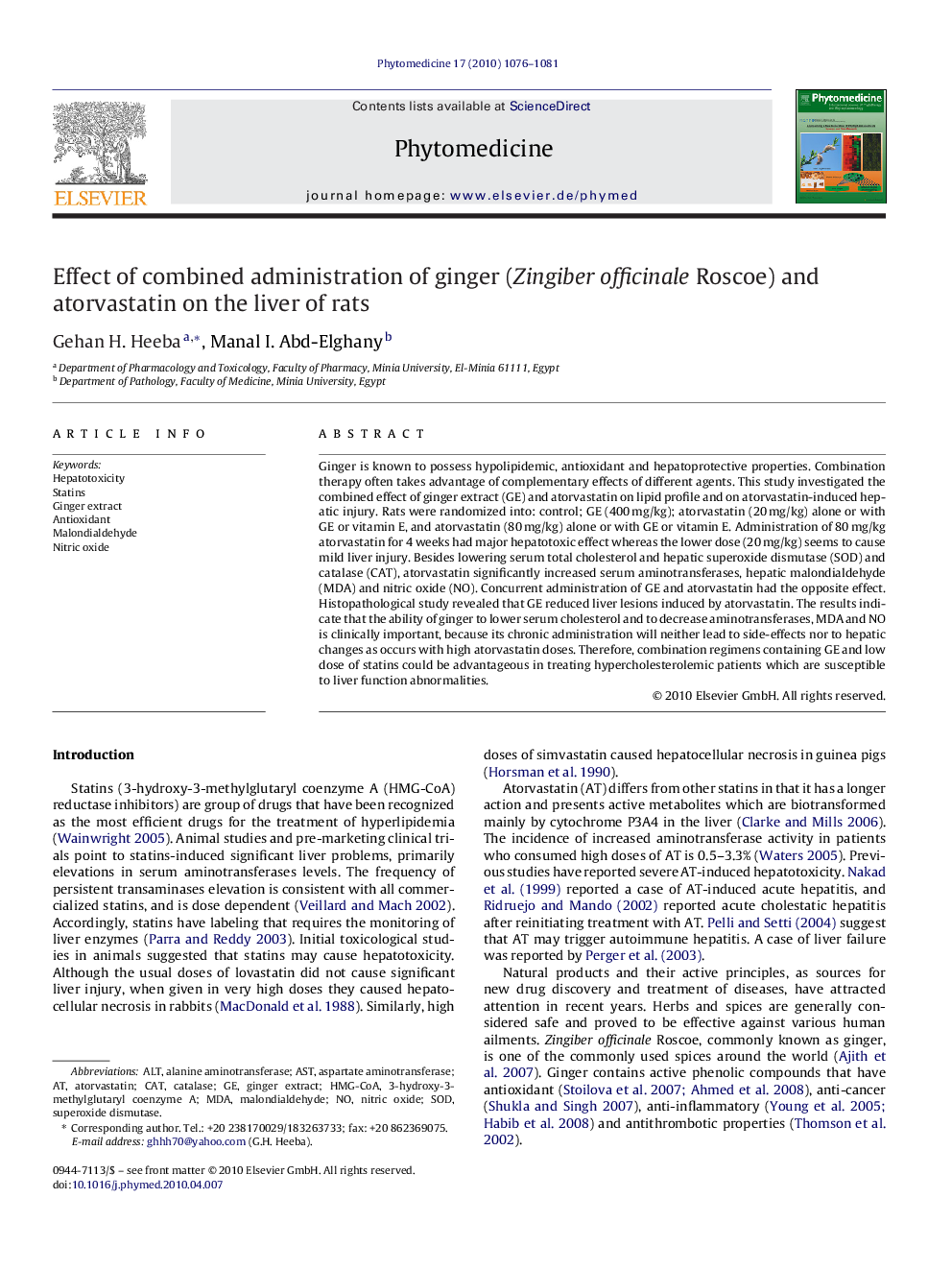| Article ID | Journal | Published Year | Pages | File Type |
|---|---|---|---|---|
| 2497165 | Phytomedicine | 2010 | 6 Pages |
Ginger is known to possess hypolipidemic, antioxidant and hepatoprotective properties. Combination therapy often takes advantage of complementary effects of different agents. This study investigated the combined effect of ginger extract (GE) and atorvastatin on lipid profile and on atorvastatin-induced hepatic injury. Rats were randomized into: control; GE (400 mg/kg); atorvastatin (20 mg/kg) alone or with GE or vitamin E, and atorvastatin (80 mg/kg) alone or with GE or vitamin E. Administration of 80 mg/kg atorvastatin for 4 weeks had major hepatotoxic effect whereas the lower dose (20 mg/kg) seems to cause mild liver injury. Besides lowering serum total cholesterol and hepatic superoxide dismutase (SOD) and catalase (CAT), atorvastatin significantly increased serum aminotransferases, hepatic malondialdehyde (MDA) and nitric oxide (NO). Concurrent administration of GE and atorvastatin had the opposite effect. Histopathological study revealed that GE reduced liver lesions induced by atorvastatin. The results indicate that the ability of ginger to lower serum cholesterol and to decrease aminotransferases, MDA and NO is clinically important, because its chronic administration will neither lead to side-effects nor to hepatic changes as occurs with high atorvastatin doses. Therefore, combination regimens containing GE and low dose of statins could be advantageous in treating hypercholesterolemic patients which are susceptible to liver function abnormalities.
